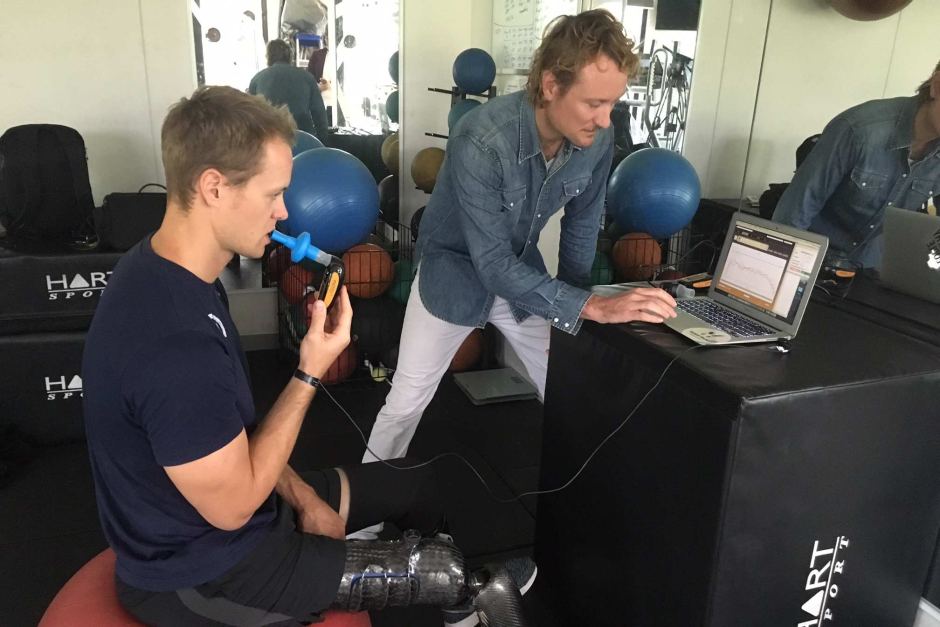A new breathing technique designed to treat lung disease has been adapted to help Australian athletes heading to the Olympics and Paralympics strengthen their muscles.
Gold Coast exercise physiologist James Fletcher has pioneered a program to strengthen the breathing muscles of star athletes heading to Rio next month.
The training involves software that makes it harder for an athlete to breathe, in turn strengthening their muscles.
Mr Fletcher has based the program on techniques used for medical patients with lung disorders, including his mother who suffers from a degenerative lung disease.
“In a nutshell we’re taking the breathing muscles to the gym,” Mr Fletcher said.
“All we’re doing for these guys is reducing their shortness of breath and improving their exercise capacity, exactly the same as we would for a person with diseased lungs.”
Swimmer Thomas Fraser-Holmes has been attending the specialised training for six months.
“What I’ve noticed, probably the biggest thing in my swimming, is being able to get that oxygen in a lot quicker and a lot easier,” he said.
“When I breathe I look at the bottom of the pool and exhale all my air and then when I go to breathe it’s more of a sharper intake of the air so I can effectively, not get more air in but get it quicker and more efficiently.”
Helping athletes deal with anxiety
The training aims to simulate an athlete’s rhythm of breathing from a race.
It also focuses on dealing with anxiety before competing with a special program which mimics the effort to control breathing when an athlete is feeling anxious.
“If they can get control of their breathing then it hopefully translates to getting control of that anxiety some athletes get when they walk on to pool deck or the start line,” Mr Fletcher said.
Paracanoeist Curtis McGrath said the program was already having an impact after just a couple of sessions.
“I think anxiety plays a big role in sport,” he said.
“Having a different thing to focus on … and things that you can control … I think that’s really great to be able to focus on the breathing side of things.”
